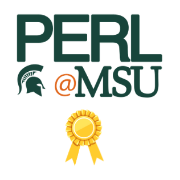MSU researchers receive NSF grant to study mathematical sensemaking in science
In brimming college lecture halls, how are undergraduate students utilizing mathematics to understand, visualize, and explain scientific phenomena—and how might we gain better insight into these problem-solving skills across an array of different disciplines?
Such questions are at the forefront of an ongoing study led by Michigan State University College of Natural Science researchers Kevin Haudek, Melanie Cooper and Rachel Henderson. Using a nearly $700,000 National Science Foundation grant, the team of MSU scientists (along with those at partnered institutions) will examine how undergraduate students respond to written formative assessments during STEM coursework and, specifically, how students implement Mathematical Sensemaking in Science, or MaSS, as part of their answers. MaSS is the ability to merge discipline-specific knowledge with foundational mathematical concepts such as patterns and proportions.
At the core of this research is the desire to design effective and innovative assessments that can reveal student approaches when tackling scientific prompts.
“Early only we brought forward the idea of rich, authentic formative assessments because they offer true insight into what students are thinking, and what they can do,” explained Haudek, assistant professor in the Department of Biochemistry and Molecular Biology. “These assessments ultimately help us as researchers and teachers to gauge where students are in their learning and where they might need some extra support. The assessments themselves will be fairly complex with multiple parts—a combination of quantitative and explanative questions that will get students to see mathematical relationships in scientific processes.”
By specifically examining MaSS in student responses, the team aims to deepen a general understanding of three-dimensional learning, or 3DL—an approach to undergraduate science pedagogy that foregrounds three instructional elements: core discipline-specific ideas, concepts that are “crosscutting” and are found in multiple disciplines, and authentic scientific practices such as computational thinking and constructing explanations.
The result is a research project that seeks to uncover data concerned with undergraduate science problem-solving, and just how students work their way through robust assessments.
“We want to know: can students construct mathematical explanations and mathematical models, and can they use these in their explanations?” said Cooper, a Lappan-Phillips Professor of Science Education in the Department of Chemistry. “Are they able to not only calculate what might happen, but expand on why it will happen beyond one particular number being larger than another?”
Assessment-driven teaching studies traditionally possess their own unique challenges and exciting opportunities for discovery.
“At the end of the day, we’re dealing with humans, and your students will surprise you all the time with their responses,” Cooper said. “Sometimes, it’ll take a few tries to find that ‘Goldilocks prompt’ to satisfy all your needs: a prompt that gives students enough information to understand what’s being asked of them, but not so much that the answer becomes obvious.”
Fortunately, MSU has cultivated an ecosystem of science education collaboration and expertise that supports such wide-ranging, cross-departmental undertakings.
“In the College of Natural Science and within the College of Education there’s a community of discipline-based education researchers that makes this kind of work possible,” Haudek said. “There’s immense support for the deeper science education community here that makes the research especially efficient.”
Beyond East Lansing, this latest NSF grant will feature collaborations with Jennifer Kaplan of Middle Tennessee State University, Anita Schuchardt of the University of Minnesota, and Michael Fleming of the University of California-Stanislaus. This degree of collaboration opens the door to an intensified understanding of student learning in an array of academic environments.
“I’m really excited to work with this cross-disciplinary group of experts from a variety of institutions,” said Henderson, assistant professor in the Department of Physics and Astronomy and Physics Education Research Lab faculty member. “Our project provides us the opportunity to not only discover how mathematical sensemaking might be taught differently across the contexts of physics, chemistry and biology, but also allows us to think about how we can be intentional in our curriculum and assessment design to elicit student explanations of mathematical models.”
Currently, the MSU project-leads are looking ahead to the fall semester when certain students will be asked to tackle new and innovative MaSS-centered assessments.

